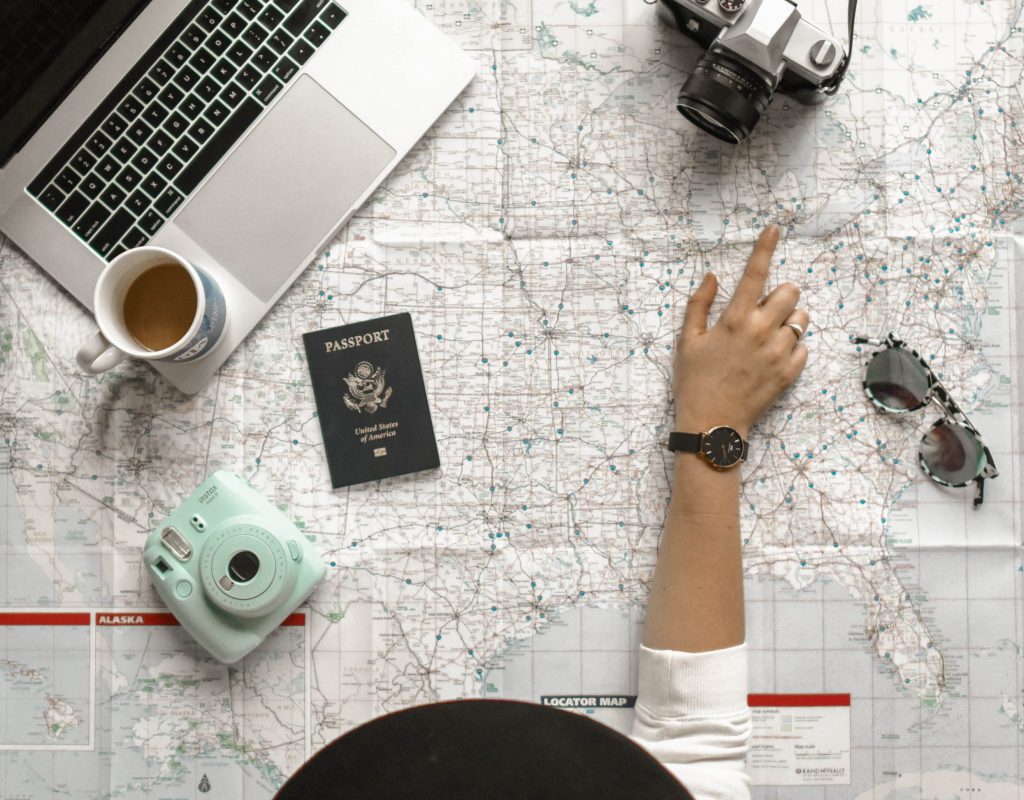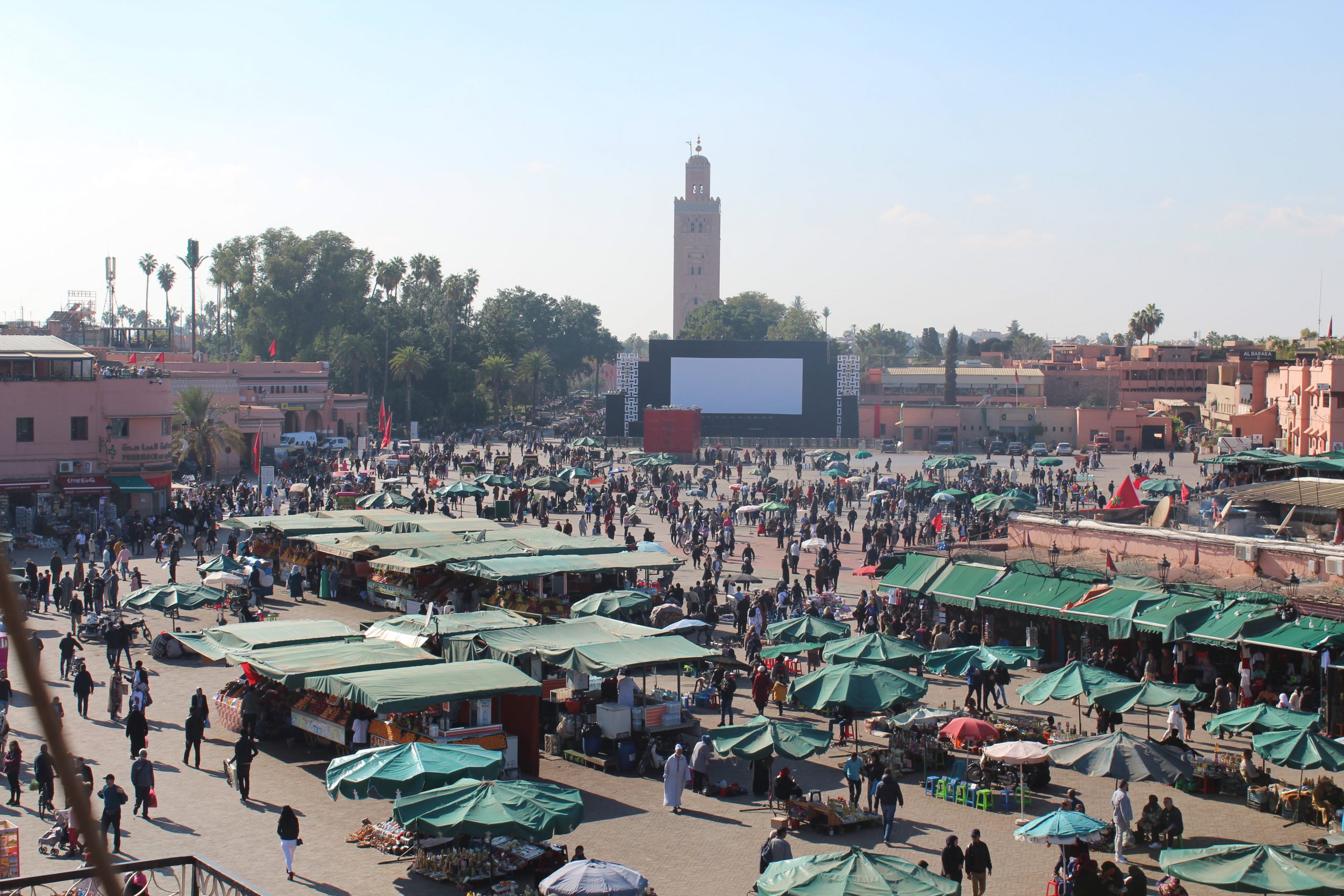June 15 2020, the day travel within most of the Schengen countries is possible again. Traveling outside your countries borders, even though the COVID-19 crisi ...
Responsible Travel
I love to travel, I try to do it as much as possible. You probably also like to travel, otherwise you would not read this page. Unfortunately there are not only benefits to exploring the world. Local people and the environment can get harmed by tourism, which is why it is important to travel responsibly. On this page I will share my tips for being a responsible traveller.
1. Try to minimise your waste
Tourism is a big generator of waste at a destination. Plastic bottles, food wrappers or packing end up in the oceans or in the nature and damage the environment. Marine life, for instance, eat the plastic waste or the microplastics that came from plastics and in the end these plastic particles end up on your plate.
This is why it is very important as a tourist to minimise your waste as much as possible. There are multiple ways of doing this, for example, use a refillable bottle like Dopper: https://dopper.com/nl . If the water at your destination is not safe to drink, you can also choose to bring a water filter. This filter will make sure that the water is purified.
Another way of decreasing your waste is to say no to plastic straws, cutlery etc. Do you really need that straw in your drink? And if you do need it, bring a metal one or ask if they have a paper one. When I was at Isole Tremiti in Italy I spoke to a woman who owns a local cocktail bar, she uses straws from bamboo and pasta instead of plastic ones. You can read more about this research trip to Isole Tremiti soon on my website!
Besides saying no to plastic utensils like straws also refuse plastic bags! Instead, put it in your own bag or bring an extra canvas bag. When I go on a holiday I always make sure I bring multiple canvas bags with me. They are lightweight, easy to use and always come in handy!
Last but not least, make sure to ALWAYS bring your waste home with you. It sounds so easy, but still so many people do not do this and leave it behind. What a waste..
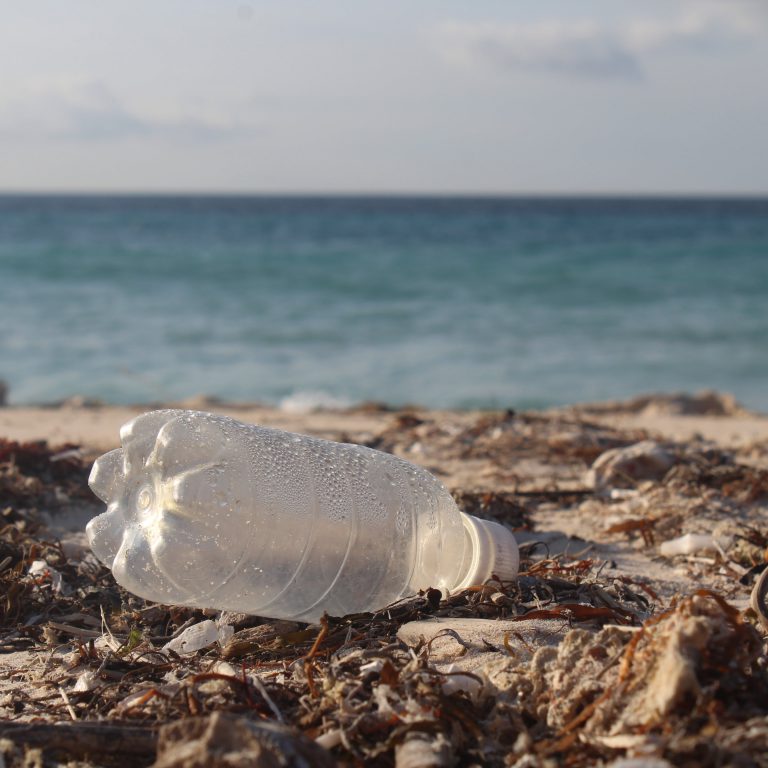
Plastic bottle on Beach – Sumba
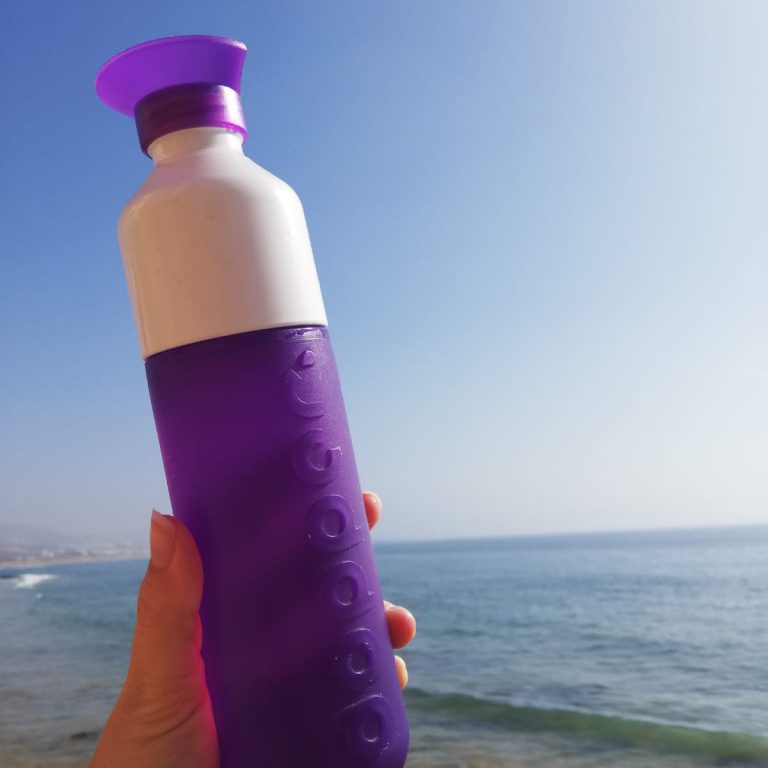
My Dopper bottle
2. Try to minimise your carbon footprint
Traveling often includes taking a plane to a nice destination. This can be either long- or short haul, of which both largely contribute to carbon footprint emissions. However, I am not going to tell you to stop flying as this would be very hypocrite as I also take planes every now and then. But I would like to give you some tips about how you can minimise your footprint before you go on your trip and at the destination itself.
Before you take a plane to another country, see if you can find some nice spots in your own country or in your neighbouring countries. Have you seen everything already or just craving for some sun (like we in the Netherlands often do) then you can still choose your airline wisely. Choose an airline that uses new airplanes. New airplanes means cleaner engines. Also, see if you can pay a little amount of money to the airline to offset your carbon emissions of that particular trip.
During your time at the destination you can of course also minimise your footprint by choosing public transport over a car or a taxi. A lot of countries have a nice public transport system which is often also very cheap. To me, public transport can sometimes be one of the highlights of my trip as you really get to see the local life or magical scenery.
Sometimes it is even nicer to walk or to go by bike to a particular area instead of taking other types of transportation. Enjoy the nice air and even work on your body! A lot of destinations offer nice bike tours and show you different spots that you otherwise maybe would have missed! See for example Ko van Kessel in Bangkok or Marrakech Green Wheels.
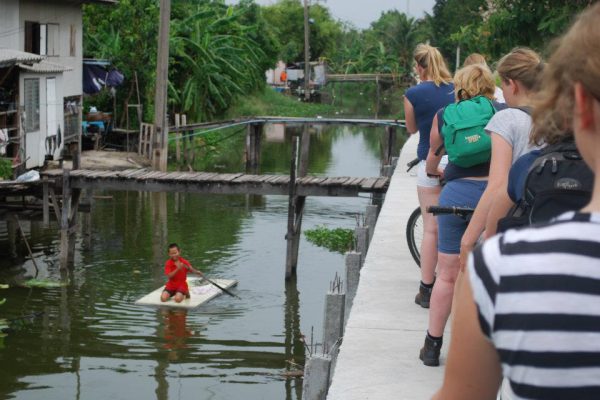
Bike tour Ko van Kessel – Bangkok
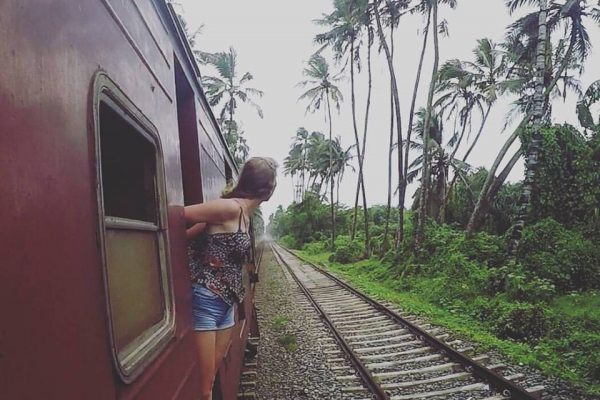
Public transport – Sri Lanka
3. Make sure your money stays with the local people
If you have ever heard of the term ‘leakage’ you probably already know that a lot of the money spend in destinations by tourists does not end up in the pockets of the local people. A lot of the money ‘leaks’ away from the destination into the pockets of the wealthier people. Sometimes this is not even at the destination itself anymore but to a company in a more developed country.
So to make sure that all your money spend stays with the local people, make sure that you buy local products as souvenirs in order to encourage the local industries. Also, eat at a locally owned restaurant or stay at a local accommodation to keep the money where it belongs. If you really want to connect with the locals, try to stay at a home stay which means that you will live in the house with the people. A good way of finding responsible accommodations is looking at the website of Travelife. This international company certifies particular companies or accommodations on their level of sustainability.
If you want to do a tour again an option is to look at the Travelife certification or just make sure that you book it with a local agency instead of a big international one. Living the local life will not only bring advantages for the local people but also provides unique experiences for you!
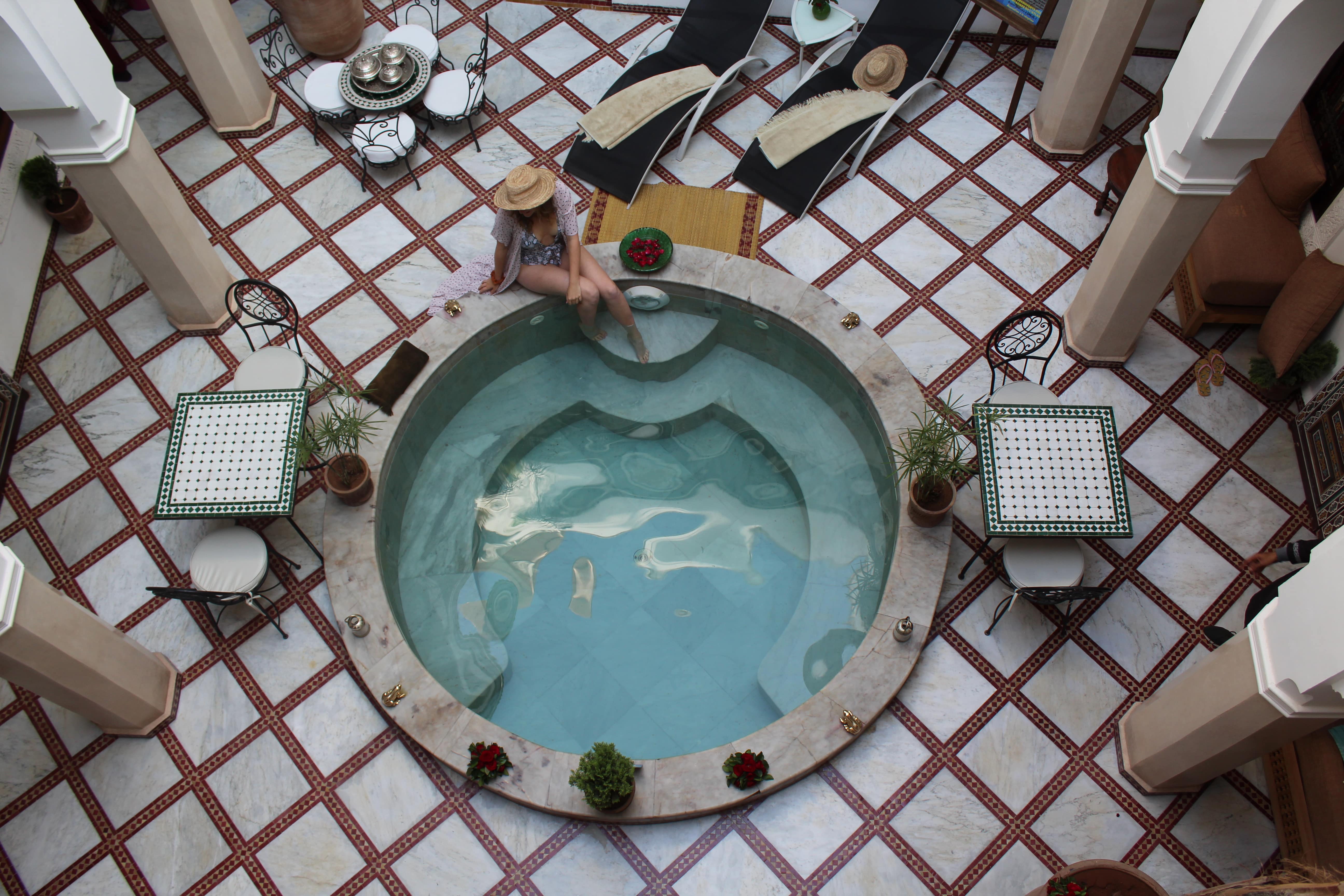
Traditional Riad – Marrakech
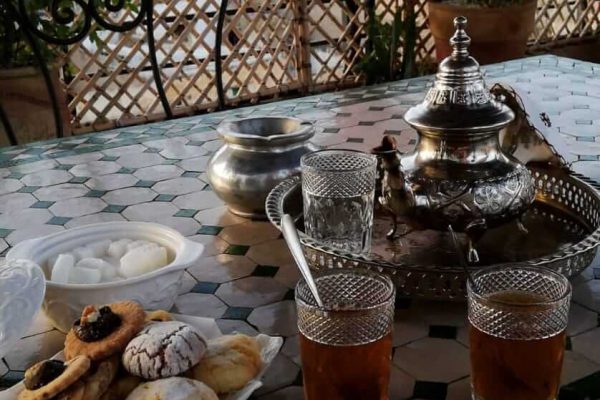
Traditional Riad – Fez
4. Think before planning activities with (wild) animals
I feel a bit hypocrite writing this part as I love animals and I would love to be around animals as much as possible. As a kid my biggest dream was to swim with dolphins and during my holiday in the Dominican Republic I made this dream happen. Was it the best day of my life? Maybe. Would I do it again with the knowledge that I have now? Definitely NOT.
The fact that wild animals are held captive for the entertainment of people is simply just wrong. As much as we like to swim with dolphins, ride elephants or take pictures with tigers it is against nature. These animals are wild and are able to kill us within a second. So what did humans to do keep them calm? When you think about it, a picture with a tiger.. This is just wrong in every possible way. Animals get marked, are put on drugs or are beaten until they listen. There is no other ethically right way of seeing animals than seeing them from a large distance in the wild.
Of course there are some possibilities to get closer in contact with animals than just watching them. It is said, for instance, that riding a camel is all right, as long as you make sure that the animal is well taken care of. Also, elephant orphanages are a better way of seeing an elephant up close than riding them or bathing them.
My main message here is to visit the animals in their natural habitat where they roam freely, eat healthy food without drugs and are free to do whatever they want.
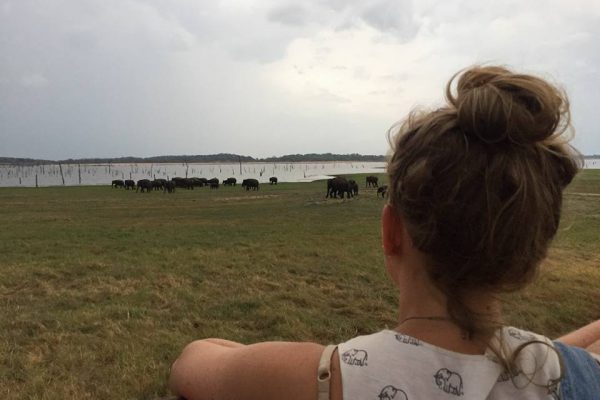
Elephant watching – Sri Lanka
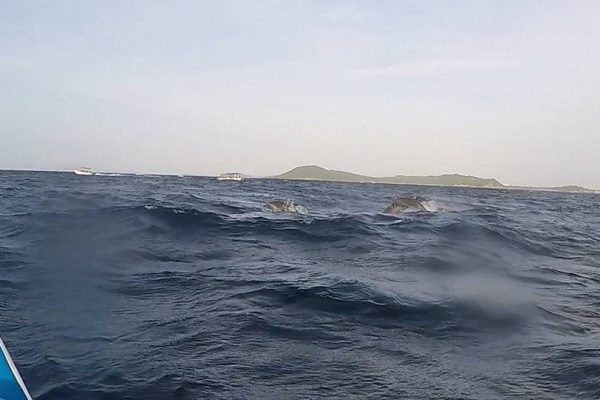
Dolphin and whale watching – Sri Lanka, Unfortunately no whales for us this time..
5. Try to eat vegetarian
As you might already know, the meat industry is a huge contributor to the carbon emissions in the world. You can help reduce this by choosing for vegetarian or vegan options for your meals. I am not telling you to go vegan immediately, just being aware of the problem and decreasing your own use can already help a lot. This is also something you can do in your own country. Try not to eat meat everyday and you will see that there are so many nice options without animals.
As a vegetarian I sometimes experienced difficulties myself. Some countries have a real meat culture and often also do not understand why a person can be vegetarian. I would advise you to always show respect when you get food offered and also do not feel bad about yourself when you decide to eat it. I experienced it two times that I was offered a meal with meat and as a way of showing respect I ate it. But for those that prefer vegetarian I am using my website to write about nice places where they have veggie options! The animals and the earth will thank you 😉

I was invited for a traditional Mansaf lunch with chicken.. – Jordan

Vegan Junkfood Bar – Amsterdam

Avocado show – Amsterdam
6. Do your research before you go volunteering
Traveling to a new country and helping the local people at the same time sounds like a trip of a lifetime. Unfortunately, volunteering by foreigners is not always beneficial for the country or the people. Popular places for volunteering are orphanages in for example Africa or helping to build schools. You might think that every help here is welcome, however voluntourism (as it is often called) has a lot of downsides. First, tourists take over jobs that normally local people would do. Painting a school does not have to be done by foreigners, right? Also, voluntourism is often of a short period of time, for instance around 2 weeks. This will be enough time for the children to get attached to a person and then left heartbroken when the volunteer leaves again.
Another example of what happens when there is a lot of voluntourism, are the orphanages in Cambodia where around three quarters of the children are not orphan at all. It becomes economical attractive to open an orphanage. With the increase of orphanage voluntourism, the amount of orphanages double. So if you want to do volunteering, I would suggest to really do research into a good company of where you can be a real value to the destination.
I hope these tips will help you to travel more responsibly and that we all can add to a better world!
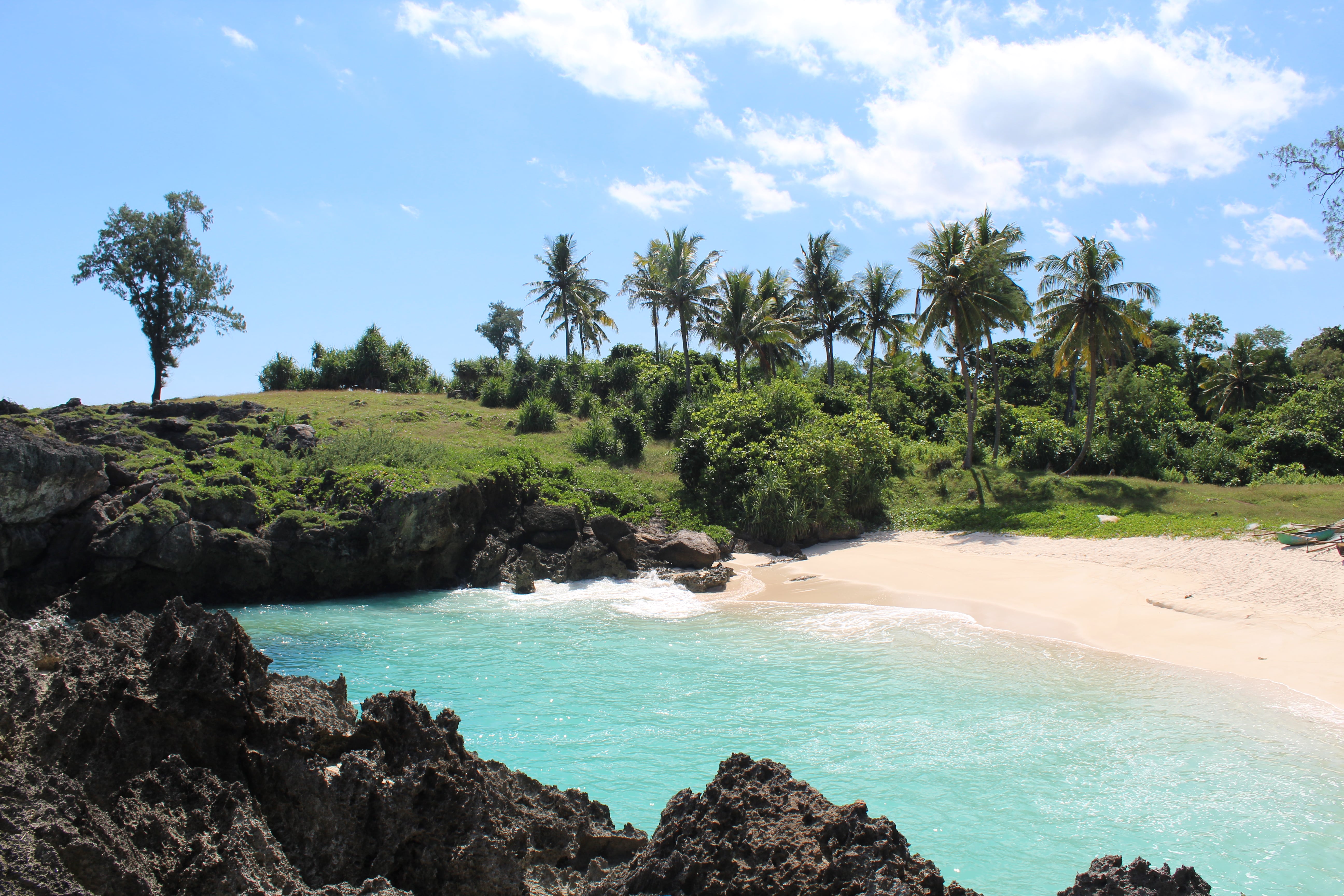
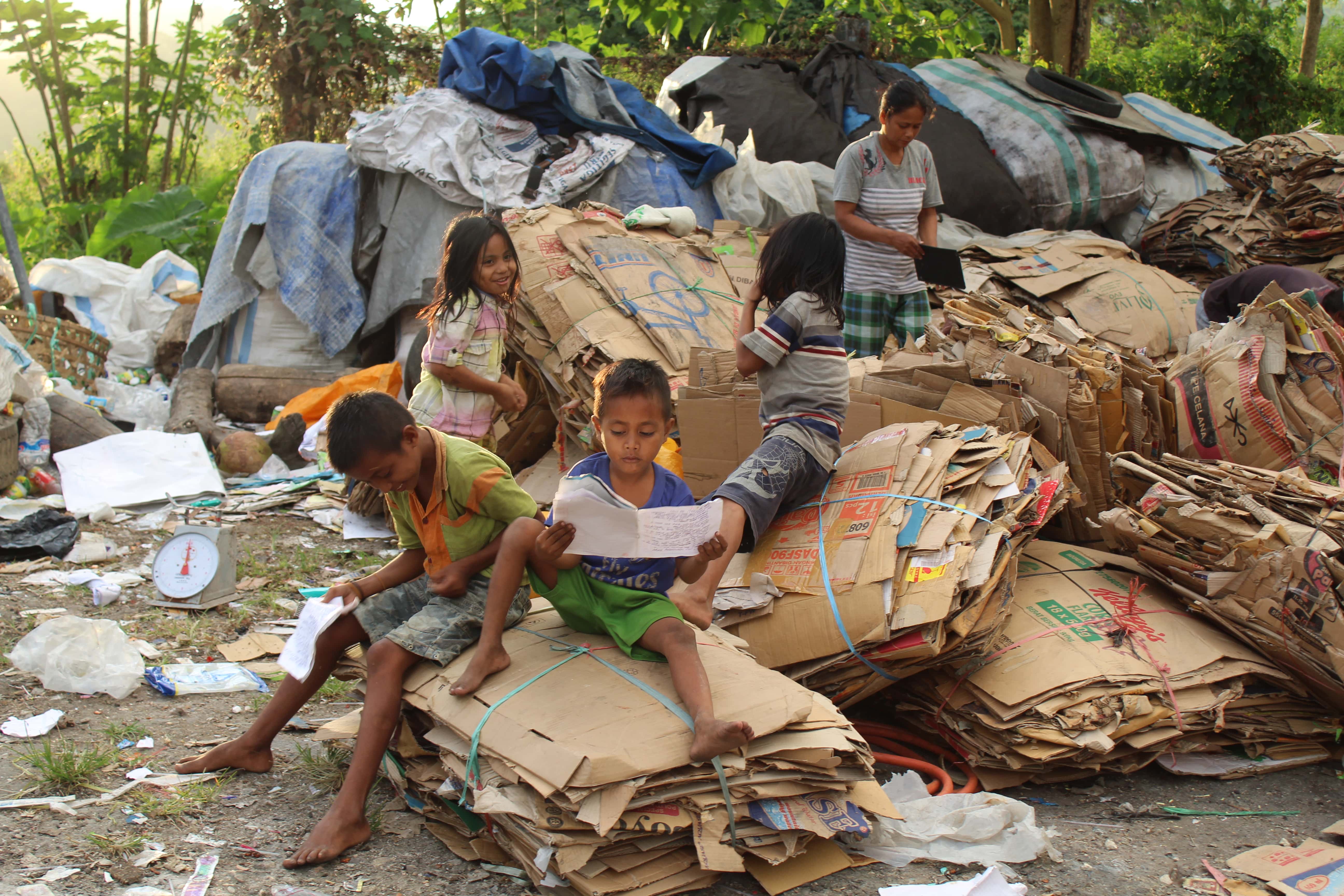
Sumba: One island 2 different sides..
The impact of human activities on a destination
Use the button to move from left to right and see the difference ..
Morocco Animal Aid – putting the welfare of animals first
During my time in Morocco, I decided I wanted to do something for the stray animals of Morocco. While traveling, you often encounter sick and hurt animals but ...
Tips to travel from home during the COVID-19 quarantine
COVID-19 is putting pressure on the world and everyone is in quarantine or self-isolation. For those who love traveling as much as I do, and cannot wait to st ...
How to travel Morocco in a responsible way
I love to travel, I try to spent every Euro I earn on flight tickets and trips. Unfortunately, whilst traveling you leave a footprint on the envir ...



